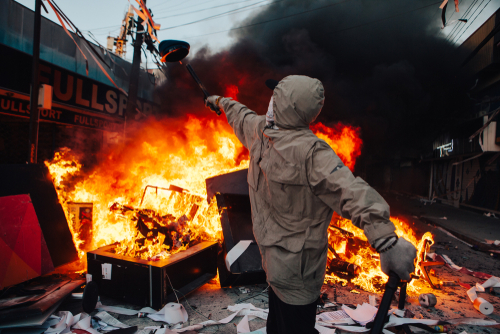
The Dominican Republic has initiated a massive deportation campaign, expelling nearly 11,000 Haitians in just the first week of October. This move is part of a larger effort by the Dominican government to remove up to 10,000 Haitian migrants per week, citing concerns over an "excess" of illegal immigrants and pressure on local resources such as schools, clinics, and hospitals. President Luis Abinader's administration is determined to enforce these deportations, despite widespread international criticism and mounting tensions between the two nations sharing the island of Hispaniola.
The deportations began on October 4, 2024, and have sparked outrage from human rights groups and officials in Haiti, where conditions are dire due to escalating gang violence, poverty, and political instability. Haiti’s government condemned the deportations, labeling them as discriminatory and accusing the Dominican Republic of using race and nationality to justify their actions. Haitian permanent representative to the Organization of American States (OAS), Gandy Thomas, described the situation as "ethnic cleansing" and warned that the expelled individuals return to a country without adequate infrastructure or support systems. He urged for a more respectful dialogue between the two nations to address the issue.
Dominican Republic expels over 10,000 Haitians, and plans to do so every week https://t.co/Az4hll37Xd
— The Sojourner Truth (@sotrueradio) October 11, 2024
The Dominican government, however, has defended its actions. Radhafil Rodríguez, an advisor to the Dominican mission at the OAS, argued that the surge of Haitian migrants is overwhelming the Dominican Republic's resources. He emphasized that while his country sympathizes with the suffering in Haiti, it cannot absorb such large numbers of people.
Rodríguez also stated that the government would investigate any claims of mistreatment, although activists report widespread abuses during the deportation process, including cases of extortion, beatings, and detentions without adequate food or water.
But Dominican cries when they say they are anti Haitians. This is not an immigration issue. Dominican republic is simply Anti Haitian! Anyone Black they consider Haitian. #RDracista https://t.co/p71euPvo7k
— Logyk 🇭🇹 (@logyc_mind) October 11, 2024
The situation at the border is increasingly volatile. Haitian Prime Minister Garry Conille voiced concern that the deportations violate human dignity and worsen the humanitarian crisis in his country. Human rights organizations have also raised alarm, warning that the mass deportations could result in serious human rights violations, including the expulsion of vulnerable groups like children and pregnant women. Amnesty International called on the Dominican Republic to halt the deportations, citing the risk of collective expulsions and racial discrimination under international law.
Amidst these tensions, the United Nations and other global organizations have appealed to the Dominican Republic to reconsider its stance. The UN previously called for a halt to deportations, especially given Haiti’s current instability, which has been exacerbated by rampant gang violence and severe hunger affecting nearly half the population. However, Dominican officials remain firm, insisting that the country cannot afford to bear the brunt of Haiti’s crisis.
As the Dominican Republic continues its weekly deportation goals, the fate of many Haitians remains uncertain. Many are left in vulnerable conditions, with activists reporting a surge in abandoned children as parents are deported without their families. Critics of the Dominican government's actions argue that this could create long-term societal and humanitarian problems both within the Dominican Republic and in Haiti.
Despite international pressure, it remains unclear whether the Dominican Republic will alter its deportation policies. Both nations are urged to engage in constructive dialogue, though, for now, the deportations continue, fueling an already strained relationship between these two Caribbean neighbors.











